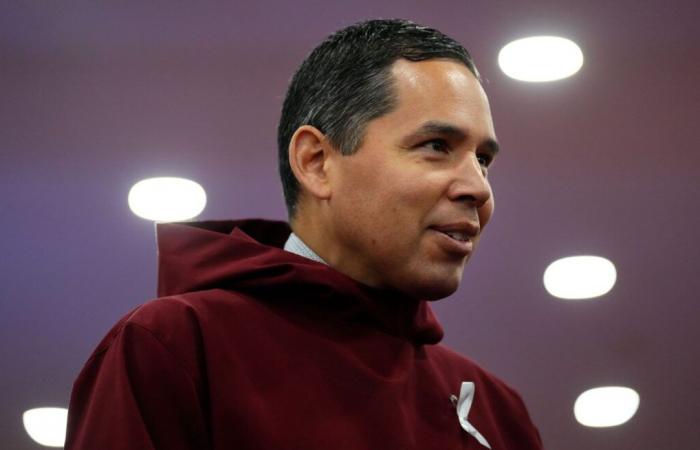The leaders of the three main indigenous organizations in the country say they hope that the new government of Mark Carney will not move too much from the priorities of its predecessors, even if it intends to put more emphasis on the economy.
The national president of Inuit Tapiriit Kanatami, Natan Obed, does not expect the new Federal Prime Minister to do everything correctly in his first days. However, he applauds his desire to learn well.
Mr. OBED underlines that Mr. Carney intends to continue the policy of reconciliation undertaken by Justin Trudeau. It seems to understand the important role that indigenous peoples can play in the economy and in the Canadian response to customs rights imposed by the United States.
“There is a lot to build,” he says.
The heads of the First Nations Assembly, Cindy Woodhouse Nepinak, says he plays great hopes in Mark Carney which gave it its cellular number. Both have already exchanged messages since the elections on Monday. She is convinced that the Prime Minister will be attentive.
The list of priorities of the two organizations is not short: improvement of infrastructure, reform of the child protection system, guarantee of access to drinking water, investments in the operating projects of natural resources, in mental health and vocational training.
Mr. Obed wants the Nutrition North program to be more transparent and more responsible for users.
This subsidy, which aims to reduce the high cost of food in the distant Nordic communities of Canada, is currently examined, as studies have shown that it was not entirely transmitted to the Inuit.
In their program, the Liberals of Mark Carney also undertook to invest in Inuit Nunangat University, the first of its kind and anchored in Inuit culture, in order to promote the preservation and revitalization of the language as well as to support economic and cultural opportunities.
Mr. Obed awaits legislative options to bring the university closer to his culmination, as well as a solid financial commitment in order to guarantee compliance with the opening deadlines in 2030.
He also wishes to see continuous funding for social programs that Inuit has been demanding for a long time, in particular for the initiative “Inuit children first”, which guarantees inits access to the same social supports as the uninits in terms of health, education and social services.
“We have gone a long way, but we cannot allow ourselves to interrupt or move away completely from the progress made over the past ten years, while we are still so far from equity, results and other Canadian populations,” he said.
Liberal commitments
The Liberal Party program plans to increase the area of land added to reserves within four years, to contribute to the revitalization of indigenous languages and to fill the deficit of $ 350 billion in infrastructure in First Nations communities, without however specifying when it provides that this deficit will be filled.
He also undertakes to present and adopt a law affirming First Nations law with drinking water – a project initiated under Justin Trudeau, but which was not completed before the extension of the Parliament and the triggering of elections.
According to Mme Woodhouse Nepinak, the government should correct some of the problems identified in this bill before presenting it again.
The new parliament has 12 indigenous deputies from all the main parties, which is imperative to ensure that the government is working in the interest of the community, said Mme Woodhouse Nepinak.
“This is a remarkable achievement,” she says. And it shows that the First Nations care and that they are committed [avec le gouvernement] More than ever before. »»
The president of the National Métis rallying, Victoria Pruden, was not available to answer questions from the Canadian press. However, she transmitted a written document highlighting the priorities that her organization defended: growth of the Métis economy, access to education and listening to the environmental concerns of the Métis.
“Our priorities are focused on building a future where no Métis citizen is left behind,” says Mr.me Pruden. Too many Métis families are still recovering from the economic impacts of COVID-19, climatic emergencies and the increase in the cost of living. We need an urgent action that reflects our realities, our rights and our potential. »»






